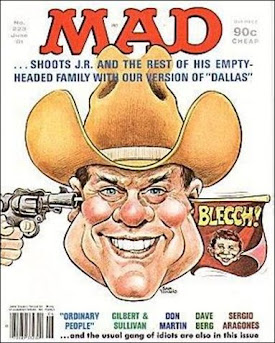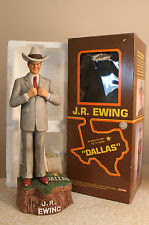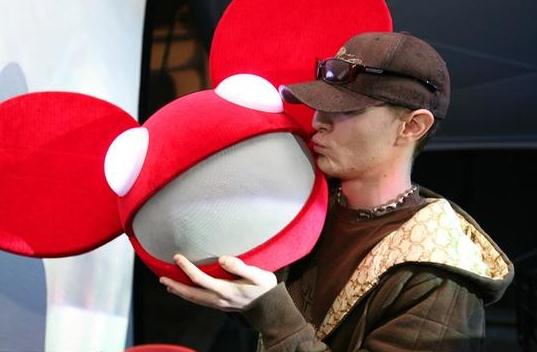 |
| A potential role model: Jeff Bridges as The Dude in The Big Lebowski (1998) |
"Oh, man, my thinking about this case had become very uptight." - Jeffrey "The Dude" Lebowski
I like to tell people I'm in a Jeff Bridges movie. It's only technically true. He's in the movie, and I'm in the movie, but our scenes were filmed at different times in different locations. In reality, Mr. Bridges and I are both interviewees in Eddie Chung's
The Achievers: The Story of the Lebowski Fans, a 2009 documentary about the fan culture surrounding the Coen Brothers' 1998 comedy,
The Big Lebowski, and the phenomenon of
Lebowski Fest, an annual, multi-city series of celebrations in the film's honor. Fans of the film call themselves "Achievers," a reference to the Little Lebowski Urban Achievers, a fictional charity which figures into the film's plot. These Achievers gather regularly at various theaters and bowling alleys to socialize, bowl, drink White Russians, and participate in costume and trivia contests. To date, I have attended one such event -- the first-ever Chicago Fest in early 2008. I happened to win the trivia contest on the Fest's second and final night, which led to my being interviewed by the film's director. I've gotten a bit of mileage out of my first and likely only screen appearance. I managed to wrangle an
IMDb entry out of it, for instance, and look what happens when you Google the movie's title:
 |
| Even Google says I'm in a Jeff Bridges movie. |
I had a lot of fun at that Lebowski Fest in 2008 and met some very nice people there, including Liz and Ben, the hosts of
The Lebowski Podcast, a show whose
sixteenth episode features your humble blogger as a special guest. Achievers tend to be funny, friendly, laid-back people, and virtually everyone I encountered at the Fest made me feel welcome. But I have not attended any subsequent Fests, and a lot of that is due to my depression and anxiety. (If you are new to this blog and don't know what's been happening in my life,
this post will get you up to speed.)
 |
| The Dude and Walter |
The film itself may contain a role model -- or "roll" model, if you will -- for my recovery. Set in 1991, the convoluted plot of
The Big Lebowski revolves around Jeffrey "The Dude" Lebowski (played by Jeff Bridges), an aging, pot-smoking ex-1960s radical who now lives a slothful but contented life in Venice, CA. Because he shares his name with that of a wheelchair-bound millionaire, The Dude is improbably drawn into a Raymond Chandler-like mystery story which requires the THC-impaired slacker to act as a sort of detective. Together with his best friend, a volatile Vietnam veteran named Walter (John Goodman), The Dude must investigate the possible kidnapping of the millionaire's young porn star wife, Bunny (Tara Reid). His adventures put him in contact with a variety of eccentric Southern California characters, including the millionaire's avant garde artist daughter, Maude (Julianne Moore), a Hugh Hefner-like pornographer named Jackie Treehorn (Ben Gazzara), and a trio of German nihilists (whose leader is portrayed by Peter Stormare) who once had a techno band but are now trying to extort money from the millionaire. Meanwhile (this is a complicated film), The Dude, Walter, and a third companion, Donny (Steve Buscemi), are participating in a bowling tournament which puts them at direct odds with the film's most infamous character, a preening, profane pederast named Jesus Quintana (Jon Turturro at his creepiest) whose bowling skills are almost supernatural. All of these events are observed by a mysterious cowboy known only as "The Stranger" (Sam Elliott), who narrates the film, addresses the audience directly, and occasionally talks in a casual but reassuring way to The Dude.
Throughout all of this, The Dude maintains an admirable equanimity -- some of it attributable to his intake of marijuana and alcohol but much of it owing to his extremely casual, low-pressure approach to life. His credo, after all, is "The Dude abides" (a beloved slogan among Achievers), meaning that he simply accepts life as it comes to him. It should be noted, however, that The Dude does not always live up to this personal philosophy. Quite often throughout the film, he shows moments of stress and anxiety, and at the film's midpoint, he even has a bout of depression as he begins to take a pessimistic view of his current situation. This attitude briefly alienates him from Walter and Donny, at which point The Stranger sidles up to him at a bar to give him sort of a low-wattage halftime pep talk.
Despite his easygoing nature, The Dude also deals with some anger issues in the film. As the Coen Brothers themselves point out in a featurette on the DVD, The Dude will often lose his cool throughout the story. Usually, these episodes are triggered by Walter, whose blustery exterior masks a deep insecurity and whose unpredictable behavior only exacerbates The Dude's existing problems. The friendship between The Dude and Walter is the heart of
The Big Lebowski. These men are opposites, both temperamentally and politically -- one a dove, the other a hawk -- yet they seem to have struck a balance which has lasted for years. Much of this is due to The Dude's eternal elasticity. It is true that he has negative episodes, as we all do, but he always returns to his genial, accepting nature before long. It is no wonder that The Dude has inspired his own religion,
Dudeism. In our most stressful and troubling moments, wouldn't we all like to be as peaceful as he seems to be?
 |
| Poor Brandt |
Frankly, I am not much like The Dude, though I am trying to be. I have much more in common with one of the film's supporting characters, Brandt (Philip Seymour Hoffman), the millionaire's nervous, glad-handing assistant. He is the one character in the film with whose life I can personally identify, perhaps because he is the only person whose job remotely resembles mine.
The Dude is chronically unemployed, while Walter runs his own security business out of a seedy-looking strip mall, but Brandt is the one who dresses up for work every day and spends his time trying to please his boss. This must be difficult, as the millionaire Lebowski is a cantankerous, disagreeable man prone to shouting and insults. Brandt spends his days pretending to smile as he does his boss' dirty work, and the beleaguered assistant must deal with some serious denial issues as he labors to put the best possible spin on the situation at hand. He chuckles jovially, for instance, as Bunny makes a crude sexual remark about him to The Dude. If this scene weren't so funny, it would be heartbreaking. Think of poor Brandt, having to deal with this humiliation as a routine part of his job.
The road to recovery is a long one, marked by "strikes and gutters, ups and downs," as The Dude succinctly puts it in the film's final scene. Perhaps through therapy and medication, I can learn to be a little less Brandt and a little more Dude.




































